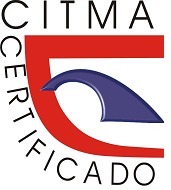Digital transformation in public administration: Principles, frameworks and main effects
Keywords:
digital government, digital transformation, Public Administration, OECDAbstract
The digital shift that is occurring in governments globally ranges from the use of technology to digitize existing procedures and services in search of efficiency gains (e-government), to the use of data and digital technologies to rethink and reorganize the way in which governments deliver public value (digital government), in order to foster open, innovative and collaborative governance. This digital government transformation needs to be understood before its implementation and adoption. This article defines the term "digital government" and describes some conceptual and evaluation frameworks for its change. Finally, the new materials of the number are introduced.
References
Álvarez Luna, R. ., González Diez, H. R., Torres Reyes, A., & Rodríguez Torres, A. (2021). openData Marco de trabajo para la publicación de datos abiertos en Cuba. Revista Cubana De Transformación Digital, 2(1): 144–158. Recuperado de https://rctd.uic.cu/rctd/article/view/109
Allessie, D., Sobolewski, M., Vaccari, L., & Pignatelli, F. (2019). Blockchain for digital government. Luxembourg: Publications Office of the European Union, 8-10. https://doi.org/10.2760/942739
Delgado, T., Ramírez, Z., & Amoroso, Y. (2018). Hacia un gobierno abierto: necesidad de una política nacional de datos. En: Delgado, T. y Febles, A. Cibersociedad-Soñando y Actuando. La Habana: Ediciones Futuro, 172-188.
Delgado Fernández, T., & Rodríguez Hernández, S. V. (2020). Datos abiertos y gobernanza de gobierno electrónico con énfasis en la gestión de información geográfica. Revista Cubana de Transformación Digital, 1(2): 1-6. Recuperado de https://rctd.uic.cu/rctd/article/view/81
Delgado, T. D. (2020). Influencia de la pandemia COVID-19 en la aceleración de la transformación digital. Revista Cubana de Transformación Digital, 1(3): 01-05. Recuperado de https://rctd.uic.cu/rctd/article/view/116
Delgado Fernández, T. ., & Sánchez Díaz, A. (2018). Repensando el gobierno electrónico: Ventanilla única, servicios sostenibles y gobierno digital centrado en la innovación. Revista Cubana de Administración Pública y Empresarial, 2(3): 254-267. Recuperado de https://apye.esceg.cu/index.php/apye/article/view/55
Di Maio, A. & Howard, R. (2017). Introducing the Gartner digital Government Maturity Model 2.0. s.l.: Gartner.
Dobrolyubova, E.(2021). Measuring Outcomes of Digital Transformation in Public Administration: Literature Review and Possible Steps Forward. NISPAcee Journal of Public Administration and Policy,14(1): 61-86. https://doi.org/10.2478/nispa-2021-0003
Herrera, F., Sosa, R., & Delgado, T. (2015). GeoBI and big VGI for crime analysis and report. In 2015 3rd International Conferenceon Future Internet of Things and Cloud, 481-488. IEEE. https://doi.org/10.1109/FiCloud.2015.112
Janowski, T., Estévez, E., & Baguma, R. (2018). Platform governance for sustainable development: Reshaping citizen-administration relationships in the digital age. Government Information Quarterly, 35(4): S1-S16. https://doi.org/10.1016/j.giq.2018.09.002
Liva, G., Codagnone, C., Misuraca, G., Gineikyte, V., & Barcevicius, E. (2020). Exploring digital government transformation: a literature review. In Proceeding sof the 13th International Conference on Theory and Practice of Electronic Governance 2020 Sep 23, 502-509. https://doi.org/10.1145/3428502.3428578.
Margets, H., Dorobantu, C. (2019). Rethink government with AI. Nature. Recuperado en octubre 2022 de https://www.nature.com/articles/d41586-019-01099-5
Mehr, H., Ash, H., & Fellow, D. (2017). Artificial intelligence for citizen services and government. Ash Cent. Democr. Gov. Innov. Harvard Kennedy Sch., no. August, 1-12. https://ash.harvard.edu/files/ash/files/artificial_intelligence_for_citizen_services.pdf
Rodríguez-Cruz, Y. (2020). La dimensión informacional de la Administración Pública para la gobernanza y el gobierno “electrónico” y “abierto”. Alcance, 9(22): 95-125. http://www.alcance.uh.cu/index.php/RCIC/article/view/223
Savaget, P., Chiarini, T., & Evans, S. (2018). Empowering political participation through artificial intelligence. Science and Public Policy. https://doi.org/10.1093/scipol/scy064
Shen, C., & Pena-Mora, F. (2018). Blockchain for Cities-A Systematic Literature Review. IEEE Access, 6, 76787-76819. https://doi.org/10.1109/ACCESS.2018.2880744
OECD (2014). Recommendation of the Council on Digital Government Strategies, OECD/LEGAL/0406, OECD, Paris, https://legalinstruments.oecd.org/en/instruments/OECDLEGAL-0406
OECD (2020). "The OECD Digital GovernmentPolicy Framework: Sixdimensionsof a Digital Government", OECD Public Governance Policy Papers, N° 02, OECD Publishing, Paris. https://doi.org/10.1787/f64fed2a-en.
Vogl, T. M., Seidelin, C., Ganesh, B., & Bright, J. (2019). Algorithmic Bureaucracy: Managing Competence, Complexity, and Problem Solving in the Age of Artificial Intelligence. https://dx.doi.org/10.2139/ssrn.3327804
Welby, B. (2019). The impactof digital government on citizen well-being. OECD Working Paperson Public Governance 32. Paris: OECD Publishing. https://doi.org/10.1787/24bac82f-en.
Williams, M., & Valayer, C. (2018). Digital Government Benchmark Studyon Digital Government Transformation. Joint Research Centre, European Commission, 2018-10. Gartner.
Downloads
Published
How to Cite
Issue
Section
License
Copyright (c) 2022 Tatiana Delgado Fernández

This work is licensed under a Creative Commons Attribution-NonCommercial 4.0 International License.













